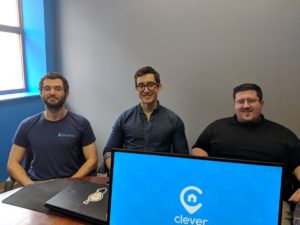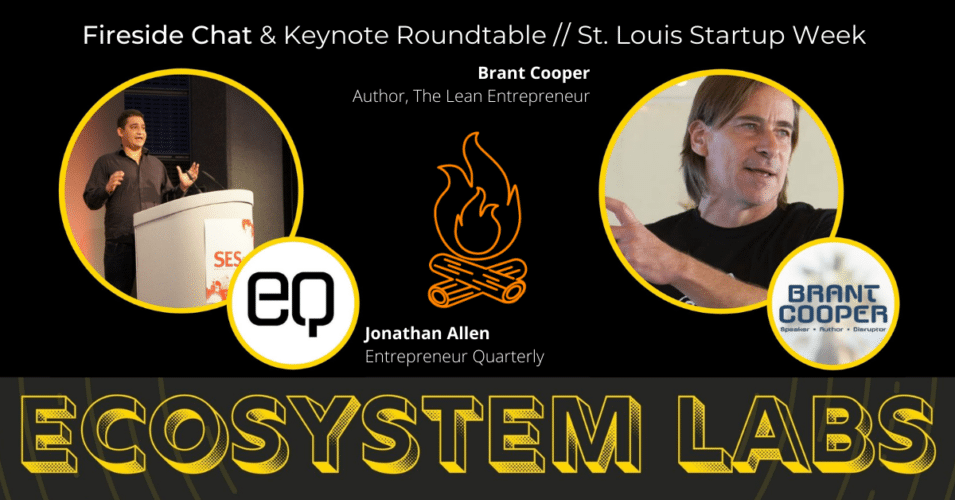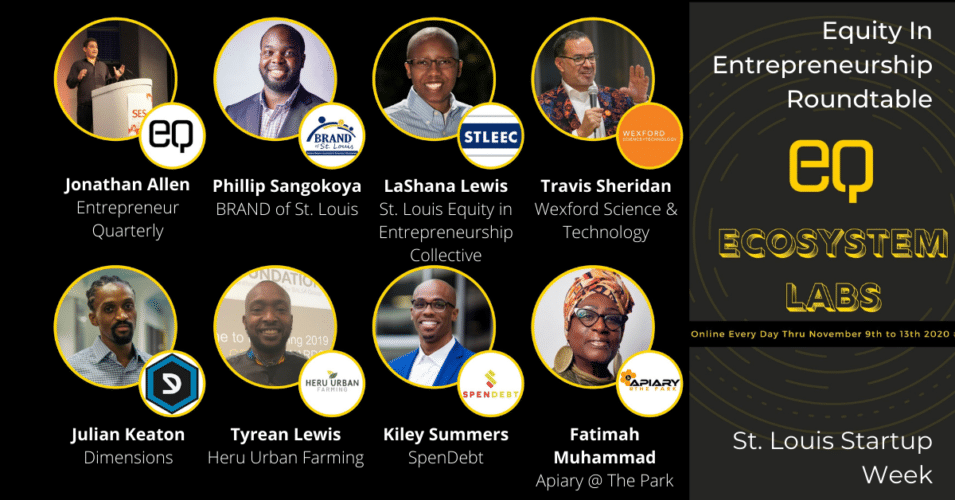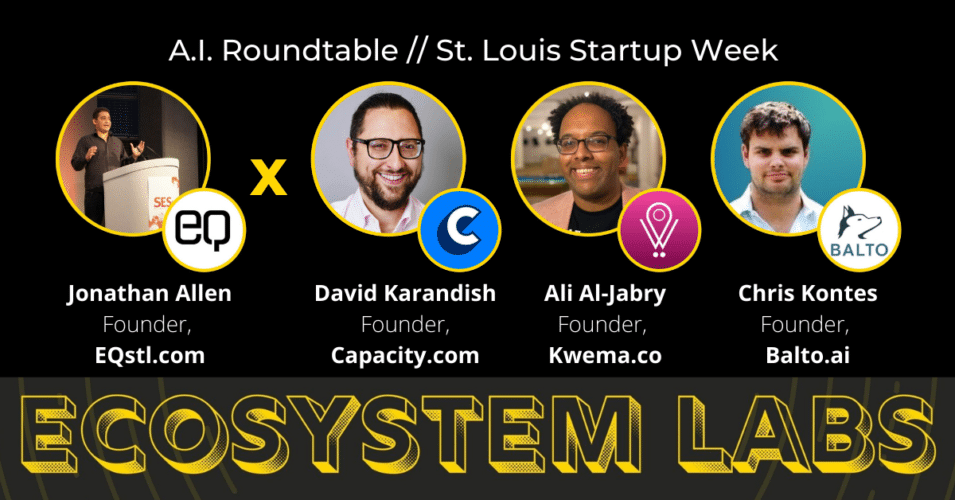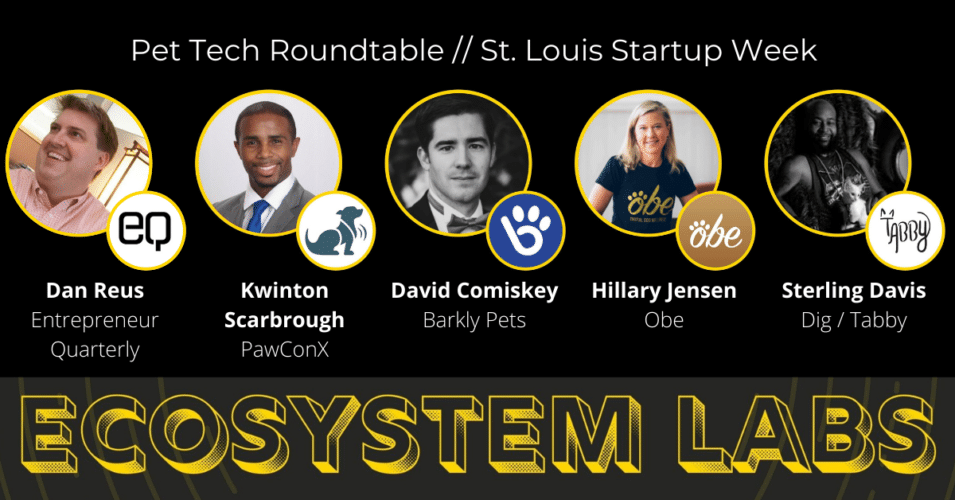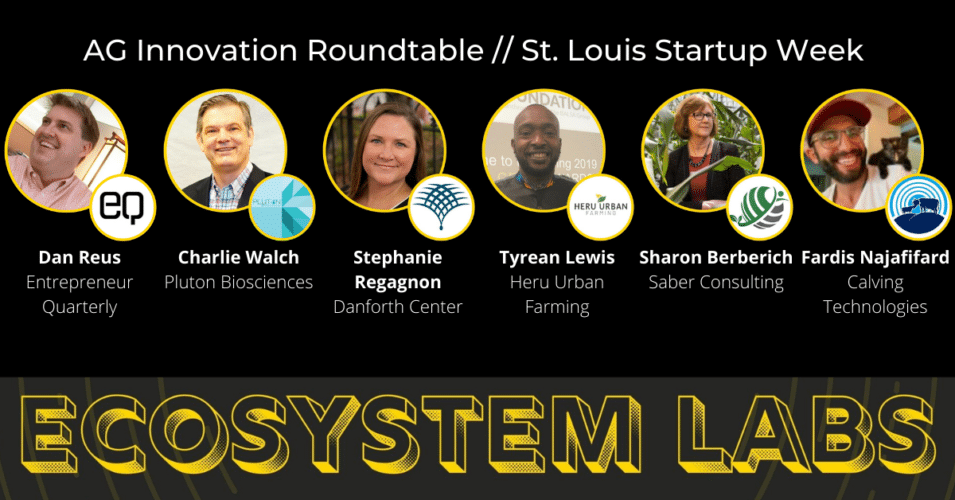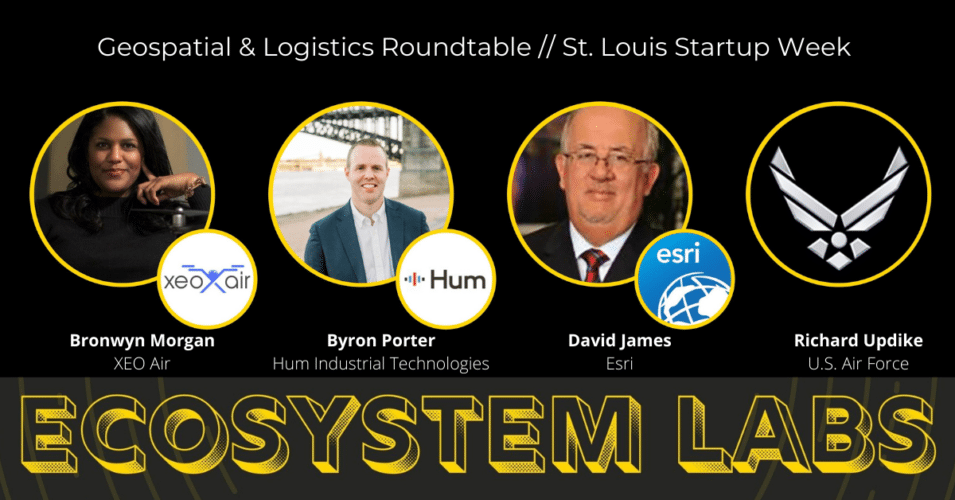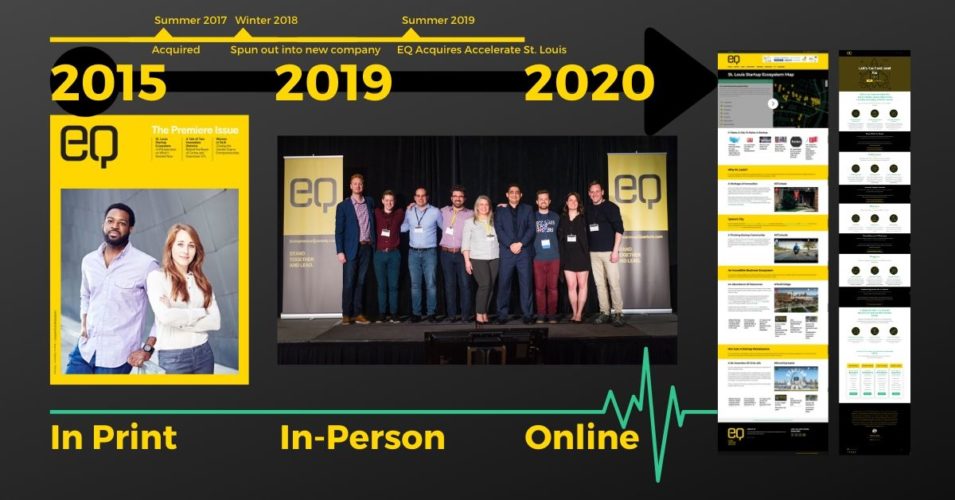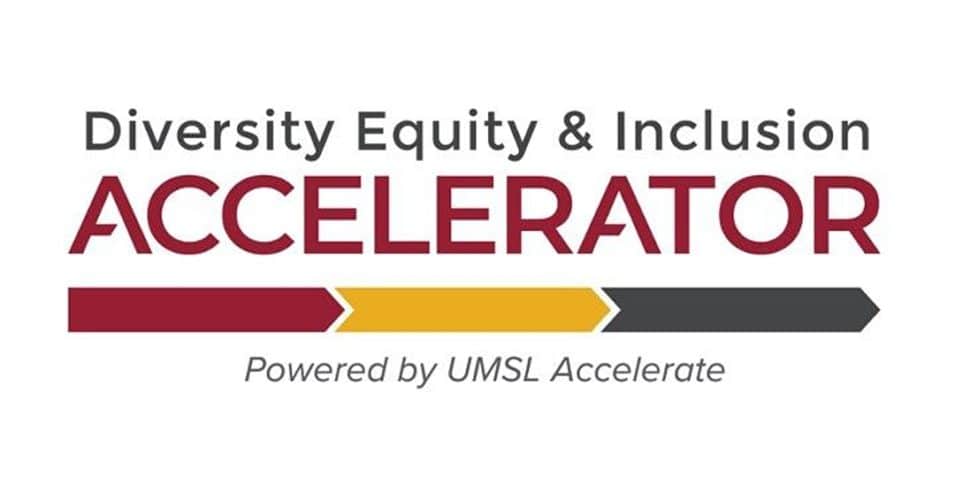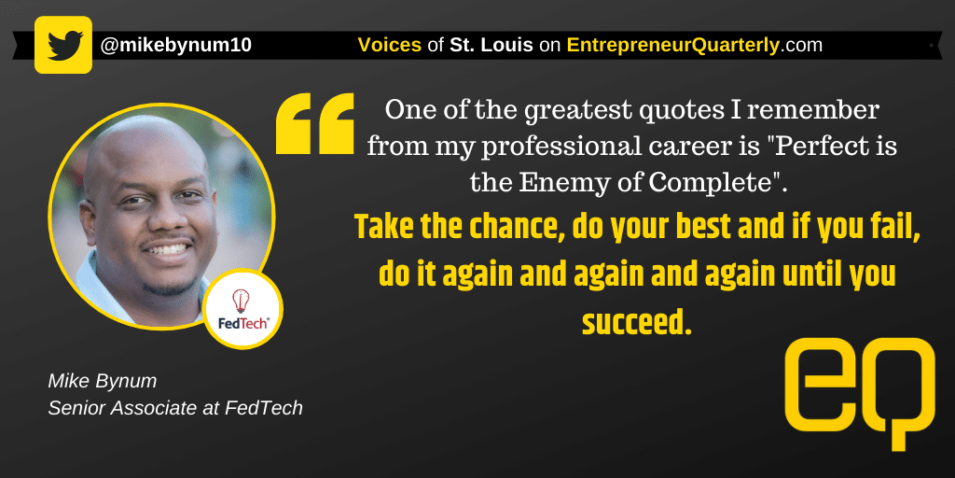Startups Are About Operational Innovation, Not Just Tech
When Brant Cooper took part in an EQ discussion for STL Startup week, he talked about his ideas for how startups could look for fresh ways to secure finance. You can catch up on all of EQ’s discussions at STL Startup Week here.
The Route to Great Mentoring and Support for Startups
Not ones to miss an opportunity, we also brought together a panel of funders and founders to discuss with Brant some of the themes he raised in his fireside chat Building an Ecosystem for Entrepreneurs By Entrepreneurs. Read on to discover what other members of the panel also had to say about acquiring more types of support for startups, or check out the entire discussion on YouTube.
Startups Are Not Just About Tech!
Tyler Mathews is Executive Director of Venture Café in St. Louis. He has found that a lot of unexpected collaborations come about when, for example, an AI person talks to an artist. He sees himself as a facilitator who provides an environment for great ideas to grow and then blossom without concentrating on giving people labels.
When people think of ‘startups,’ many immediately think ‘tech,’ he says. Trying to get away from this mindset was something close to the hearts of all the participants on the panel.
Luke Babich, Co-founder and COO of Clever Real Estate, believes the desire to label in this way comes from a belief, often by funders, that technology is the secret to serve extra customers at no additional cost. Luke also believes that help for founders in navigating the conversations with mentors and funders is sometimes lacking, meaning it’s not always clear how either supports the other.
When he founded his company, what mattered were conversations between homeowners and real estate agents and extrapolating a new business from these. The technology needed to turn all this into a long term success came further down the line, he explained.
Supporting Any Type of New Business
This observation was picked up on by Alfred Jackson, Entrepreneur Support Manager with Arch Grants. “When someone has an idea,” he says, “We are thinking what we can do for them, rather than what they can do for us.”
Alfred sees his role as acting more as a service, rather than getting too involved in the nuts and bolts of the startup. Luke agreed that he thinks this is something the Arch Grants team does really well because, just by being involved, they’re able to lend credibility to the small companies they support.
Lindsay Van Quaethem, Principal & Founder at City Block Comms, believes St. Louis has a startup ecosystem based on community support and changemakers. Noone has ever said ‘no’ to her when she’s asked for help, she says.
“If you succeed in creating a scalable startup, then you’ve got more employees and more people coming into that area,” Brant Cooper says, “In order to support this, you need agencies, dry cleaners and restaurants and all of these other entrepreneurs creating other types of businesses.”
Erik Lutenegger, founder of Tenacity sees promoting the successes of small businesses in St. Louis, like those Brant mentioned, as crucial.
Getting the Right Level of Mentoring
Ecosystems need to be inclusive but also curating, Brant believes. Problems can happen if too many mentors or EIRs (Entrepreneurs in Residence) get involved in order to benefit themselves rather than the startup and ultimately the ecosystem, he says.
“One of the toughest things in ecosystems around the world is the quality of the mentors,” Brant says. The best mentors can, for example, be entrepreneurs with limited experience but who have successfully secured financial backing, he believes.
A big problem, he says, can be getting successful entrepreneurs to give back to the community. They may have felt that they didn’t get adequate support from their community when they started out and therefore find it unnatural to want to give anything back to it.
Finding the Right Mentors for a Startup
Steve Epner teaches MBAs how to be entrepreneurial within corporations at Saint Louis University. He operates a mentoring system which does not allow mentors to invest in the startups they’re involved with and are not allowed to work full time for them or sell them any services.
What works, he says, is when entrepreneurs are in control of the level of mentoring they feel they need.
He also believes that many successful entrepreneurs who’ve now retired share a desire to want to give something back in a mentoring capacity. However, he says they have difficulty finding the connections they need with young startups who might benefit from their experience.
Nurturing the Risk Averse
Monique Bynum runs the Diversity Equity Inclusion Accelerator at UMSL Accelerate, University of Missouri-St. Louis. A community energizer, the DEI Accelerator program is sponsored by Ameren, Edward Jones and Express Scripts, so she shares Brant’s belief in looking outside of the box for less traditional ways to go about finding startup funding.
A former EIR at Business Accelerator with Boeing, Steve Epner has some advice for those with ideas around startups. “Don’t think of big corporations as your enemy. This is because what they have is the ability to help fund ideas, more easily than you might find from your standard venture capitalist.”
“There are a lot of very innovative people who have fantastic ideas who don’t have the risk tolerance to go out on their own. They’re still entrepreneurs, and we can learn a lot from them,” he believes.









